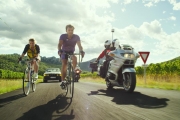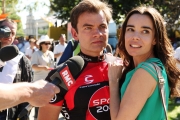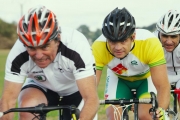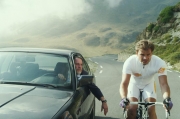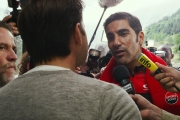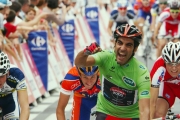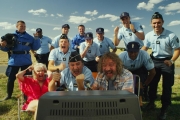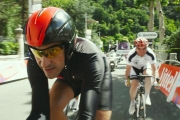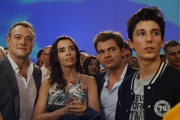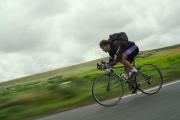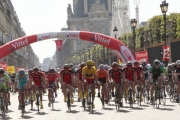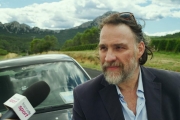Synopsis
François has a real passion for the Tour de France.
When he is fired by his boss and dumped by his wife, he decides to set off on his own Tour, one day ahead of the real professional event. Initially alone, he is quickly joined by others, inspired by his defiance. The obstacles are many, but the rumor of his feat spreads. The media goes wild and crowds of bystanders cheer him on. The Yellow Jersey of the official Tour is incensed. François has to be stopped!
Credits
Director: Laurent Tuel
Screenplay: Romain Protat, Lyes Belaïdouni, Yohan Lévy
Producers: Olivier Delbosc, Marc Missonnier, Nicolas Souhami, Renaud Souhami
Cast
Clovis Cornillac • Bouli Lanners
Ary Abittan • Bruno Lochet
Elodie Bouchez • Paul Granier
Schedule & Presentation
![]() Presentation by and discussion with director Laurent Tuel
Presentation by and discussion with director Laurent Tuel
More information
Choose a picture to see the filmography (source : IMDB)
![]()
How did the idea of having the Tour de France as a backdrop for the film come to you?
When the producers proposed this scenario, I found the idea wonderful, but I thought it was missing a sense of realism. I absolutely wanted the spectator to be able to see himself in the story. Thus, I reworked the text to bring out these elements. The Tour [de France], whether we like it or not, we all have emotions about it: this energy that sooths the hot July afternoons…The regions of France it goes through, the mythical race-stages over the mountains… The Tour de France is one of the last sporting events that you can attend as a family, picnicking on the road side, enjoying the view free of charge.
Would you say that La Grande Boucle is a comedy or a fable?
It’s funny that you ask me this question because before starting this film I had just purchased again the complete works of Jean de La Fontaine. They are a source of inspiration without end. It was never the intention to make a joke at the expense of the characters in creating implausible situations. If the spectator can think that what happens to the characters cannot happen to him, then I delete or change the scene. Humor that is not linked with reality does not interest me, because it’s not touching.
On how many race stages of the actual 2012 Tour de France did you do the shooting and was it easy to work where the race was really taking place?
It was not simple, but we succeeded in squeezing in by maintaining a small-sized work team, filming very early in the morning or before the professional racers arrived. The goal was to take full advantage of the general atmosphere, of the race infrastructures in order to give authenticity to our project. It was very complicated: with its two thousand two hundred vehicles and its four thousand authorized and accredited people, the Tour is a very heavy machine to move and its organization is like high-precision clockwork.




